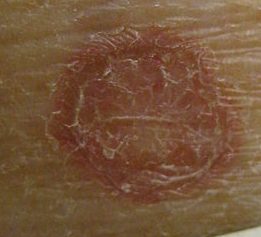 Disseminated Superficial Actinic Porokeratosis, or DSAP, might not be something you’ve heard much about, but if it affects you or others in your family, it’s certainly worth learning about.
Disseminated Superficial Actinic Porokeratosis, or DSAP, might not be something you’ve heard much about, but if it affects you or others in your family, it’s certainly worth learning about.
What is Disseminated Superficial Actinic Porokeratosis?
“Disseminated Superficial Actinic Porokeratosis (DSAP) is an inherited skin condition which causes dry and flaky patches to appear on the skin, mostly on the legs and arms,” explains Dr. Adam Mamelak, a board certified Dermatologist at Sanova Dermatology. Lesions caused by this condition present as a spot about the size of a pencil eraser, but can increase to even double that size. The edges of the lesion will be visibly raised, with the interior being either rough or smooth. While the color of these spots will vary from person to person, and can even vary in response to external stimuli, the most common colors are red, pinkish, purplish, and brown.
Who gets this condition?
“DSAP is most common on the skin exposed to the sun in those of European descent,” Dr. Mamelak shares. The average age for this condition to develop is between 35 and 40.
Why do you get it?
DSAP is an inherited condition which is often seen in families. Since the tendency is inherited as an autosomal dominant characteristic, on average, half of the children of an affected parent will also have this condition.
Is it dangerous?
While not usually a danger on its own, there is a chance of porokeratosis developing into skin cancer, so having any lesions checked and treated by a specialist is always a good idea.
How is this condition treated?
Currently, there is no common, effective cure for DSAP. A number of therapies including retinoids, topical 5-fluorouracil, imiquimod, and exfoliating alfa-hydroxy acids, as well as destructive therapies such as cryotherapy and fractionated laser resurfacing can help.
Contact Us
For more information on DSAP or to have your skin checked by one of our certified dermatologists, please contact us.
Photo credit: (1) Brendan Thomas, MD
